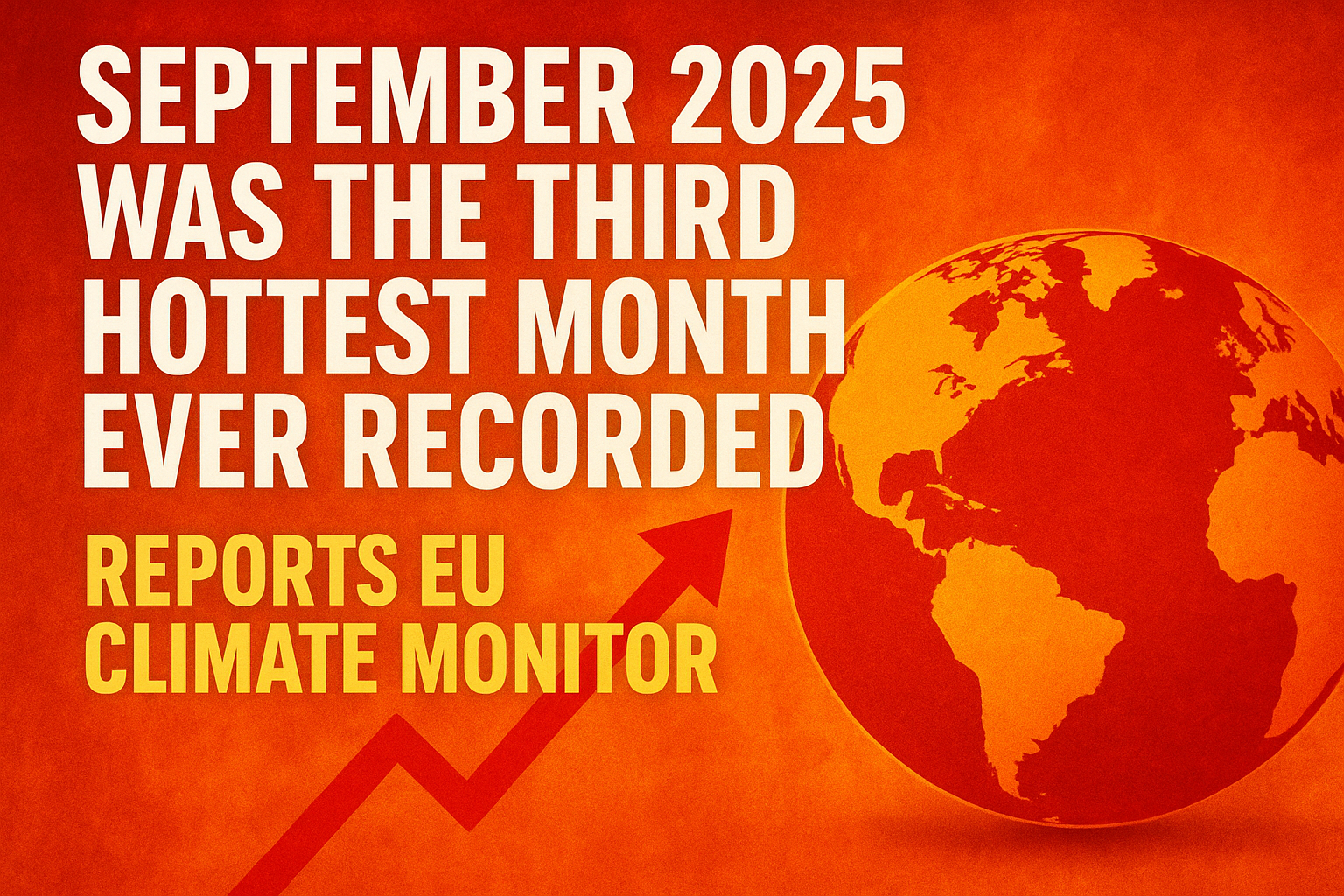
The planet just marked another alarming milestone. According to the European Union’s Copernicus Climate Change Service (C3S), September 2025 was the third hottest September on record globally. It continued a troubling pattern that scientists say confirms the relentless advance of global warming.
Data from C3S revealed that the global average temperature in September was about 1.47 degrees Celsius higher than the pre-industrial average. This figure keeps 2025 on track to become one of the hottest years in human history. The month was slightly cooler than the record-breaking heat observed in 2023 and 2024, yet it still ranked among the top three hottest Septembers ever recorded.
In India, the month was the ninth warmest September since national records began in 1901. The India Meteorological Department (IMD) reported that the country experienced 9 percent lower rainfall than normal. Northwest India received a deficit of 37 percent, while central India saw a drop of 26 percent. This shortfall affected soil moisture levels, farm output, and water availability in several states. The IMD noted that both temperature and precipitation patterns reflected the continuing influence of climate change and El Niño conditions.
Globally, heatwaves extended across continents. Large parts of Europe, North America, and Asia faced unusually high temperatures. Some regions in Africa and South America also recorded heat levels that shattered long-term averages. The World Meteorological Organization (WMO) confirmed that extreme weather events were becoming more frequent and intense, driven by record-high ocean temperatures and rising greenhouse gas concentrations.
The world’s oceans remained a key source of concern. Copernicus data showed that the global average sea surface temperature for September 2025 was the second highest ever recorded. It stood just below the all-time record set earlier this year. Ocean heat content plays a crucial role in regulating the planet’s climate system, and scientists have warned that rising sea temperatures can intensify storms, disrupt marine life, and accelerate melting in polar regions.
The National Oceanic and Atmospheric Administration (NOAA) in the United States echoed these concerns. It reported that global ocean surface temperatures remained above average for the sixteenth consecutive month. NOAA also stated that the last 12 months were about 1.6 degrees Celsius warmer than the pre-industrial average. This indicates that the world is inching dangerously close to the 1.5-degree threshold set by the Paris Agreement.
For Asia, the consequences were visible in diverse ways. Monsoon patterns in South and Southeast Asia fluctuated sharply. India, Bangladesh, and Myanmar faced irregular rainfall that affected crops and river systems. In China, prolonged heat and drought damaged farmland in several provinces. Meanwhile, the western Pacific region saw powerful typhoons that left widespread damage in the Philippines and parts of Japan.
Scientists warn that 2025 could end up being one of the top three warmest years ever recorded. Samantha Burgess, Deputy Director of C3S, said that even short-term variations caused by El Niño cannot hide the long-term human influence on climate. She explained that each new month of record-breaking or near-record heat adds to a consistent trend that has been unfolding for decades.
Experts are urging governments to act faster. They argue that the data from Copernicus, NOAA, and WMO is not just statistical evidence but a clear warning. The planet is heating at a pace that current policies cannot contain. Despite global agreements on reducing carbon emissions, fossil fuel use continues to rise, and deforestation remains rampant in many regions.
The impact of this warming trend is already visible. Glaciers are retreating, sea levels are rising, and ecosystems are under pressure. Health experts have also noted a surge in heat-related illnesses and mortality. Cities across Asia, Africa, and South America are struggling with heatwaves that threaten public health and infrastructure.
In India, meteorologists expect that the coming winter might also be warmer than usual. That could further affect agriculture and water storage. Scientists from IMD and C3S have urged authorities to strengthen early warning systems, adopt climate-resilient farming techniques, and invest in renewable energy to reduce dependence on coal.
As the world approaches another year of broken temperature records, the scientific community is united in its concern. The message is clear. The planet is heating faster than expected, and every delay in climate action makes the challenge harder to reverse. It is a reminder that time is running out to keep Earth’s temperature within safe limits.





















